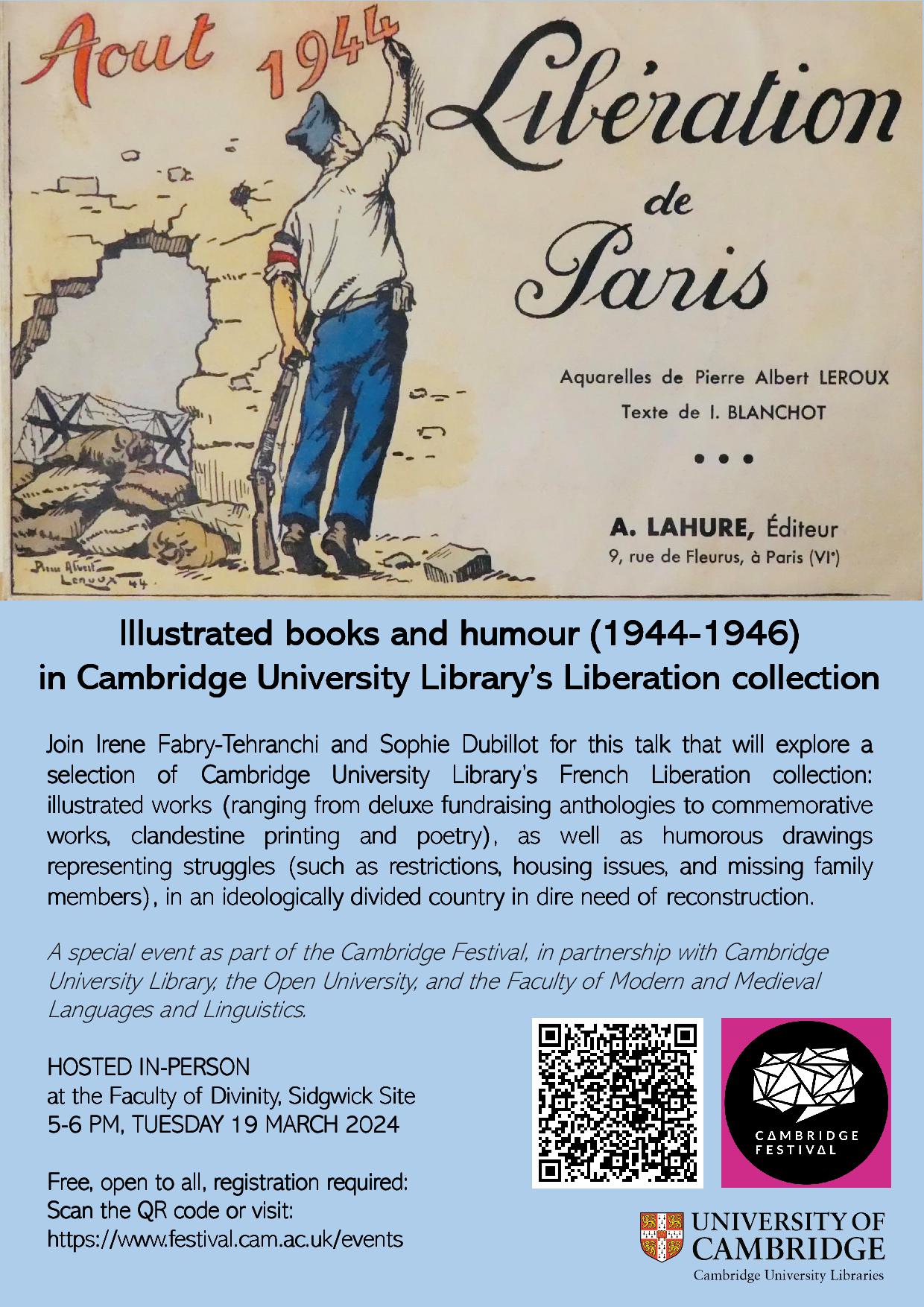This year will mark the 80th anniversary of the Normandy landings and the Liberation of France from German occupation, at the end of the Second World War. As part of the ongoing promotion of and research into Cambridge University’s Library Liberation collection (1944-1946), we have been delighted to shed light on Sophie Dubillot’s AHRC-funded collaborative (Cambridge UL and Open University) PhD project: ‘Ce n’est pas une blague: Purposes and Limits of Visual Humour in Early Post-War France (1944-46)’ and on the Liberation Collection (1944-46) Visiting Scholarship at Cambridge UL, whose first recipient will be announced in the next few weeks. We would be very happy to welcome you on Tuesday 19th March, 5-6pm at the Faculty of Divinity on the Sidgwick site, for Sophie Dubillot and Irène Fabry-Tehranchi’s talk on the Liberation collection: Illustrated books and humour in Cambridge University Library’s Liberation collection (1944-46), as part of the Cambridge Festival (you can register here).

This talk will examine a selection of the Liberation collection’s illustrated works (ranging from deluxe fundraising anthologies to commemorative works, clandestine printing and poetry), as well as humorous drawings representing struggles (such as restrictions, housing issues, and missing family members), in an ideologically divided country in dire need of reconstruction.

Irène Fabry-Tehranchi




